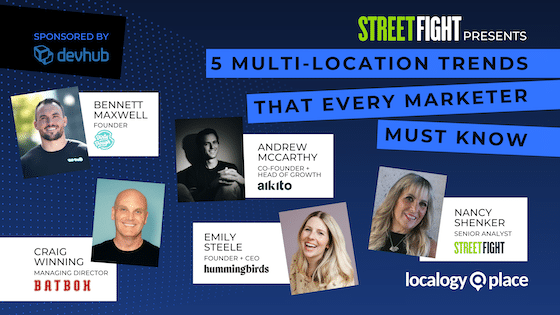As outlined in a recent blog post, digital marketing expertise from one marketer to another varies dramatically. That same variation exists among SMBs and national brands both separately and in comparison to each other. For that reason, selling digital solutions and products has required sales teams to be more dynamic.
Client discussions and sales calls have in some ways evolved into training sessions. Hearing about anticipated leads, impressions, clicks, ROI, etc., isn’t enough to close the deal when it comes to digital. Helping clients understand what they are paying for is just as integral as the data and projections provided during each pitch.
At the LSA we receive regular questions from members and their employees on a range of topics pertaining to digital marketing and technology developments. The following collection of questions comes from a large LSA member and are fairly representative of issues being addressed and fielded by the company’s sales and product teams.
1. What makes your website show up in search results?
A lot of factors impact SERPs. The Local SEO Bible can best answer this one.
2. Why should SEO be a part of my marketing strategy?
Without SEO, a website can be invisible to search engines. Click here for more from Moz.
3. What are the KPIs in PPC and what do they mean?
Clicks, click through rate (CTR), conversion rate, cost per acquisition (CPA), total spend and others. Click here for more from BizNet.
4. Why can’t I see my PPC ad?
PPC Essentials provides a thorough answer here. Also, here is Google’s answer.
5. How does performance improve when SEO and PPC are paired?
Last year, Jim Yu, CEO of BrightEdge, answered this questions over on Search Engine Land.
6. What are the KPIs of a website?
Vanity metrics like number of visits and even ranking doesn’t necessarily mean more sales/leads. Though from 2013, this article does a good job of breaking down the KPIs by website type (blog, ecommerce, lead gen).
7. What is mobile location-based advertising?
While there are many nuances and levels of depth to this discussion, here is a broad overview from Greg Sterling:
Mobile location based advertising is advertising shown on mobile devices (mobile web or in apps) that uses location for additional targeting precision. It can include many types of ads or channels in mobile: search, display, native, video or social ads.
Location targeting can take the form of “geofencing” or “geotargeting,” which designate areas or zones within which ads should be shown to mobile users. For example a geofence might be defined within 2 miles of a particular brand of retail stores. Those outside the designated areas, which can be small or very expansive, will not see the ads.
Location targeted mobile ads are often intended to drive consumers into stores or business locations or generate sales in the real world rather than online conversions.
Another use of mobile location involves the definition or segmentation of audiences based on user location history. This operates as a kind of real-world behavioral targeting, retargeting or audience targeting. Location targeting methodologies can also be combined or layered on top of one another.
Research shows that consumers consider location-based ads more relevant and are more likely to respond to them. Studies have also documented significant ad performance improvements from using location targeting with mobile advertising. Often the location targeting is not visible to consumer; the ad unit may or may not mention location.
8. What is considered local SEO when I have different store front locations? Do I need multiple websites and different location pages in my site?
Search Engine Journal has a good article on this titled, Local SEO: How to Optimize Your Website to Rank For Multiple Locations.
9. What exactly is Google+ Local, its benefits and why is it important to get claimed properly?
As to the “why” of this question, about 65% of all online searches go through Google, so claiming a business listing on Google is just one of the critical steps towards showing up in search results. Also, last year Google My Business replaced the Google Places for Business dashboard and the Google+ Local Dashboard. This article highlights what you need to know about the change and why it is important.
10. What are the mobile trends in local search?
Our Local Media Tracking Study has some interesting insights. Check out our recap of the data on Search Engine Land.
The influence search engines, particularly Google, still has on the space is obvious. The “help me rank in Google” refrain is still widespread as illustrated by these questions. But this is just one company’s experience. What are you hearing from your clients?




One Response
Thank you Joe for the article. It will be helpful to our sales staff. I especially appreciate the relevant links provided on each topic.